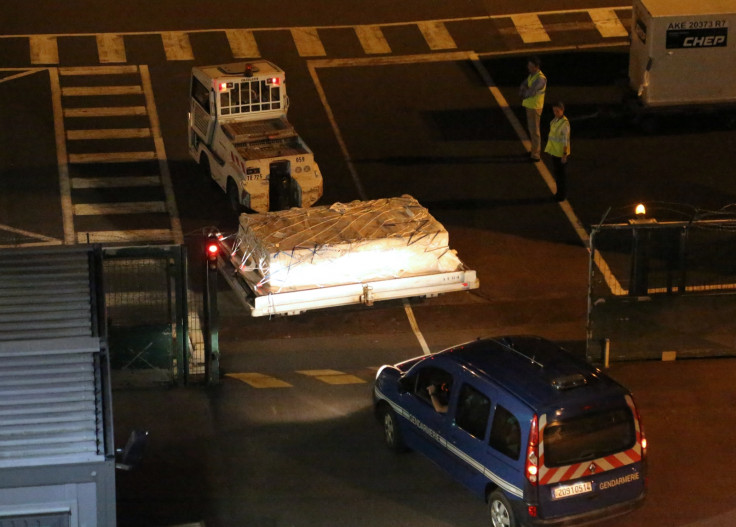Malaysia Airlines MH370: Countries involved in search for missing aircraft to arrive in France

Delegations from all the countries involved in the multi-nation investigation into the missing Malaysia Airline Flight MH370 will arrive in France shortly to coordinate search efforts after a flaperon from a Boeing 777 was found washed up on Reunion Island.
The delegation members will visit France's aeronautical testing facility in Toulouse, where debris suspected to be from the missing aircraft is kept for analysis.
US aircraft manufacturer Boeing will also despatch a technical team to participate in the investigations.
Channel News Asia said the delegation members will have to officially confirm that the piece of wreckage found on the island is from a Boeing 777 aircraft, before linking it to possibly MH370.
Agence France Presse said Malaysian officials have already confirmed that the flaperon found on the island is indeed part of a Boeing 777, the same model as MH370 which disappeared while flying from Kuala Lumpur to Beijing with 239 people on board on 8 March 2014.
The news agency said given that MH370 is the only Boeing 777 to be lost at sea, the debris is "virtually certain" to be part of the missing aircraft.
Malaysia's civil aviation department delegation led by director general of civil aviation Azharuddin Abdul Rahman and representatives from Malaysia Airlines met with their French counterparts and the three French magistrates assigned to the case on Monday (3 August).
Investigators from the research section of France's Air Transport Gendarmerie and representatives of the Bureau of Investigation and Analysis were also present to take stock of findings, AFP said.
Both teams will work together to help shape the investigations going forward in the search for the aircraft. France is a newcomer to the multi-nation search for the aircraft.
Forensic experts are expected to start work on the debris found on the island on Wednesday. It will be undertaken at the same testing facility where more than 600 pieces of debris from the Air France plane that crashed in 2009.
“We should not expect miracles from this analysis.”
The next stage of the investigation will revolve around trying to figure how the debris detached from the aircraft. Experts will be looking for signs of burns or mid-air explosions as well as whether the wing flap was detached from a hard landing.
The flaperon will be analysed using physical and chemical methods using a scanning electron microscope that can magnify up to 100,000 times, to understand how it was damaged, said Pierre Bascary, a former director of the tests at France's General Directorate for Armament.
"We should not expect miracles from this analysis," former BEA director Jean-Paul Troadec told AFP.
Barnacles on debris could provide clues
Reuters reported that the barnacles encrusted on the flaperon could provide clues to the missing aircraft. Based on photographs, ecologists in Australia believe the crustaceans clinging on to the debris are goose or stalk barnacles.
"Barnacle shells ... can tell us valuable information about the water conditions under which they were formed," said Ryan Pearson, a PhD student at Australia's Griffith University who is studying the shell chemistry of barnacles to determine migration patterns of endangered loggerhead turtles.
The technique is also used to study the movement of whales. Experts analyse barnacle shells to determine the temperature and chemical composition of the water through which they passed to help reveal their origin, Reuters reported.
It is however unlikely to pinpoint an exact location, Pearson warned.
Marine archaelogists study barnacles for clues on shipwrecks but this is believed to be the first time they will be studied to find a missing aircraft, the news agency said.
"It's a nice example of the unexpected ways that discovery research can be surprisingly useful in tackling new problems in different contexts," said professor Angela Moles, evolution and ecology research centre at the University of New South Wales.
Malaysia has asked islands surrounding Reunion – Mauritius, Seychelles, Madagascar and Comoros – to help in the search for further debris, the Telegraph reported.
"We have responded positively to a request from the government of Malaysia," said Xavier-Luc Duval, Mauritius Deputy Prime Minister on Monday.
Coastguard boats and its plane have been asked to step up surveillance. "Every effort will be undertaken to locate any debris," he added.
© Copyright IBTimes 2025. All rights reserved.






















